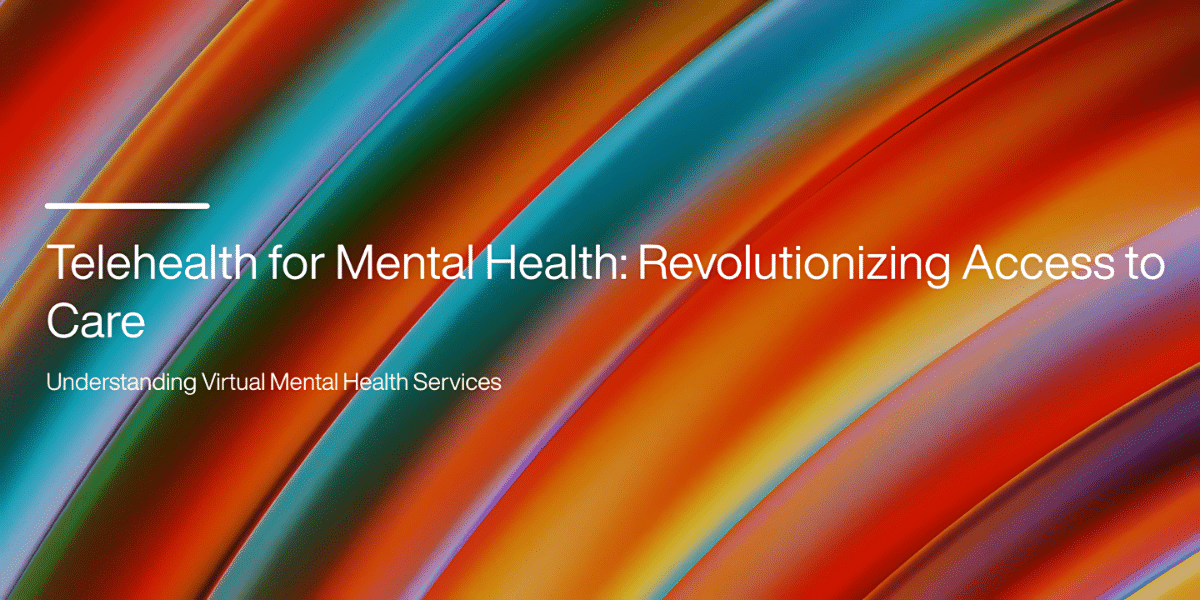Telehealth is transforming how mental health services are delivered, breaking down barriers and enhancing accessibility for individuals worldwide. With technology at its core, telehealth services offer virtual therapy sessions, counseling, and psychiatric consultations to help manage conditions like anxiety, depression, PTSD, addiction, and more.
Understanding Virtual Mental Health Services
Telehealth has redefined mental health care delivery, especially during the COVID-19 pandemic, when demand for virtual services surged.
Types of Telehealth Mental Health Services
Telehealth platforms support a wide array of services:
- Individual therapy sessions
- Group therapy consultations
- Text-based therapy
- Medication management
- Mental health screenings
Research indicates high patient satisfaction, with virtual relationships often as strong as in-person connections.
Technology Platforms and Tools
Telehealth operates through:
- Synchronous Interaction: Live video consultations
- Remote Monitoring: Tracking patient health data
- Store-and-Forward: Sharing patient records securely
- mHealth Apps: Smartphone-based support
These platforms provide flexibility, enabling patients to access care via smartphones, tablets, or computers.
Security and Privacy Considerations
Privacy remains a cornerstone of telehealth. Providers use HIPAA-compliant software with robust encryption to ensure patient confidentiality. Protocols address privacy challenges, ensuring secure data storage and communication.
Benefits of Online Mental Health Care
Telehealth offers unparalleled advantages, both for patients and providers.
Increased Accessibility and Convenience
Virtual care bridges gaps for individuals in remote or underserved areas. Studies highlight significant adoption among diverse groups, including individuals with disabilities and dual-eligible Medicare beneficiaries.
Cost-Effectiveness and Insurance Coverage
Virtual care reduces expenses and aligns with insurance policies. Often covered by Medicare, Internet-based therapy options prove cost-effective and deliver outcomes comparable to traditional therapy.
Privacy and Reduced Stigma
Telehealth enhances confidentiality by allowing patients to receive care in private spaces. This convenience reduces stigma, improves appointment adherence, and offers multiple communication options.
Implementing Effective Teletherapy
Providing quality teletherapy requires attention to technical and relational aspects.
Setting Up Virtual Sessions
A reliable setup ensures seamless interactions:
- Use HIPAA-compliant tools
- Ensure stable internet connections
- Create a professional, private workspace
Building a Therapeutic Alliance Online
Therapists foster trust through:
- Clear communication
- Attentiveness to non-verbal cues
- Regular check-ins about the virtual experience
Premier Practices for Remote Care
Adhering to guidelines enhances care quality:
- Obtain informed consent for telehealth services
- Verify client identity and location
- Develop crisis intervention protocols
Overcoming Digital Mental Health Challenges
While telehealth offers significant benefits, challenges persist.
Technical Barriers and Solutions
Providers address connectivity issues and equipment limitations through IT support and patient education.
Managing Emergency Situations
Mental health emergencies demand proactive measures, including emergency contacts and crisis plans.
Digital Literacy and Training
Healthcare organizations invest in digital training for providers and patients to enhance platform usability and confidence.
Ensuring Quality in Virtual Mental Health
Telehealth thrives on stringent quality standards.
Provider Qualifications and Licensing
Practitioners must adhere to state-specific licensing laws and maintain liability insurance. Initiatives like the Interstate Medical Licensure Compact simplify multistate practice.
Outcome Measurement and Monitoring
Tracking patient progress improves treatment outcomes, ensuring timely adjustments to care plans.
Quality Assurance Protocols
Providers follow strict technical and clinical guidelines, using HIPAA-compliant platforms and evidence-based practices to maintain care standards.
Conclusion
Telehealth for mental health has revolutionized access to care. Providers are reshaping the mental health landscape by combining advanced technology, secure platforms, and expert training. As telehealth evolves, its impact on accessibility, quality, and patient outcomes will remain transformative.
Bask Health leverages cutting-edge telehealth solutions to provide comprehensive, patient-centered care. Our commitment to innovation ensures that individuals receive the support they need anytime, anywhere.
Revolutionize your approach to mental health care! Learn how telehealth breaks barriers, enhances accessibility, and provides personalized solutions. Read more in Telehealth for Mental Health: Revolutionizing Access to Care.
Disclaimer: This content is for informational purposes only and is not intended as medical advice, nor does it replace professional medical expertise or treatment. If you have any concerns or questions about your health, always consult with a physician or other healthcare professional.
Published by Jeremy S.









